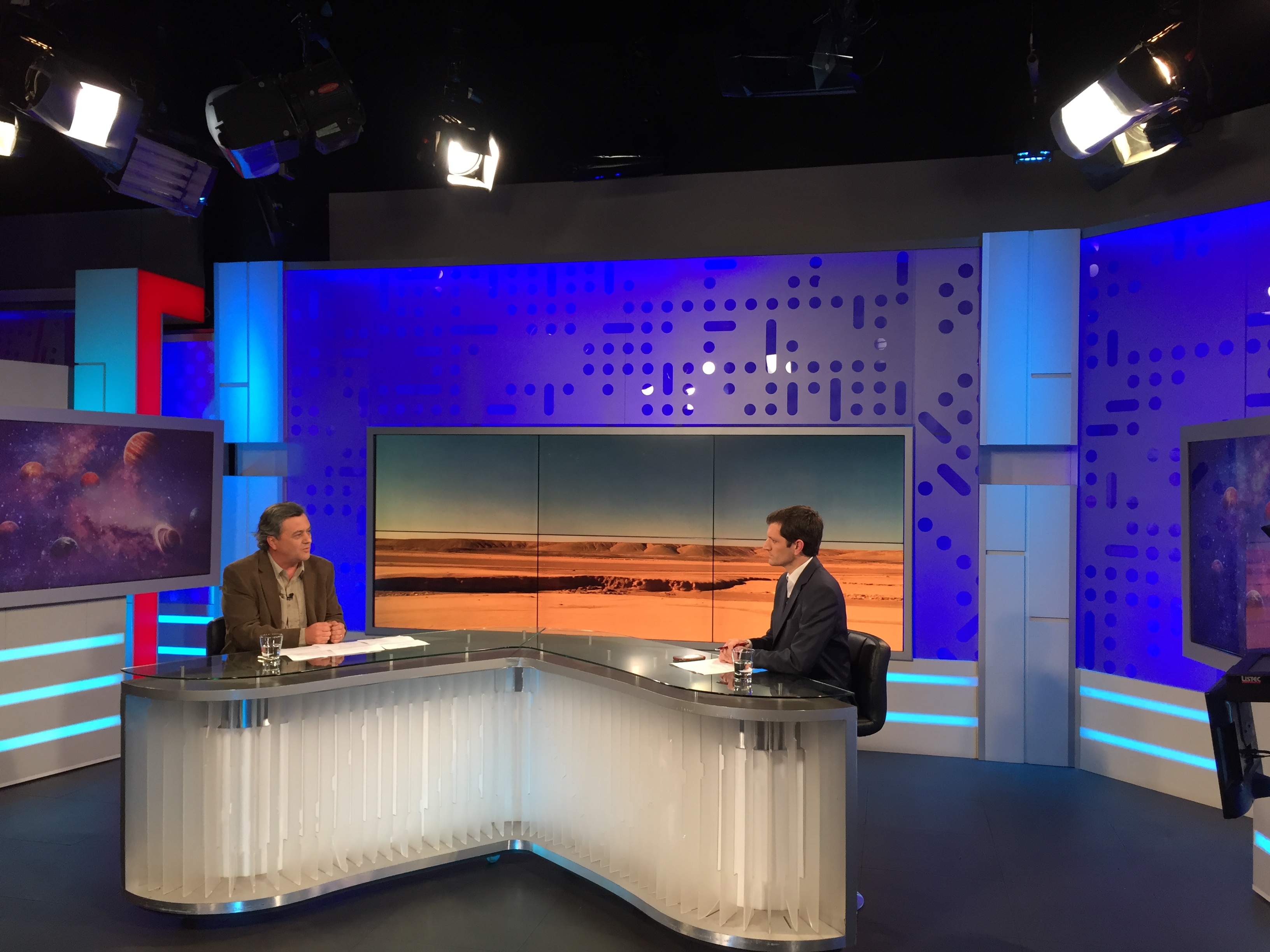
What is Chile’s potential to become an exporter of solar energy? What is holding us from being a power in this area? How to line up the best scientists around the creation of a national solar market? These were some of the questions addressed by Dr. Rodrigo Palma, director of SERC Chile, who was interviewed on Wednesday, May 10 in TVN Channel 24Horas series “Explorers, from the Atom to the Cosmos”.
During the 30-minute live show, led by Nicolás Vial, three key topics were addressed. Regarding the first one, focused on the question “Can Chile become a solar energy exporter?”, Palma emphasized the solar potential of the Atacama Desert.
The second topic of interest was storage, considered to be the great challenge of solar energy today. An article featuring interviews with researchers from SERC Chile provided the answer: it is possible to use lithium and other salts as a solution to this problem.
“There are other types of storage for lithium. In the experiments we are undertaking in the north, we mix it with other nitrates and create salts that can store heat, temperature and energy, which no longer involves an electrochemical conversion. The heat is then used to generate steam to move a steam turbine, which activates an axis that moves an electric generator and produces electricity. That is the other side of lithium, that of an element capable of participating in two different technological veins, which is something we need to closely look at.
Finally, the work of Ayllu Solar, an initiative of SERC Chile in Arica and Parinacota that seeks to contribute to the sustainable development of communities in the region, such as Visviri, through the use of solar energy and the creation of human capital, was pointed out.
“We think of Chile’s solar future in two directions: communities that use and believe in solar power, and solar projects of greater magnitude. When we finally bring them together, we will turn Chile into a solar power. For this project (Ayllu Solar), our key partner, located in the same region, is Universidad de Tarapacá, whose team is developing a solid work on the subject of solar water treatment, which is an area that even though we are not addressing today, is very relevant”.
In addition, to conclude the interesting interview on Channel 24Horas, Palma brought up the teamwork: “I also wanted to talk about interdisciplinary character of the project. It is impressive to see the diversity of topics in this project, ranging from social to specific knowledge in different technical aspects, added to the challenge of working with various institutions, such as the BHP Billiton Foundation, which finances the project. Combining all this through science, as well as connecting with projects in the real world and their communities with due responsibility, is the new challenge for us”.


